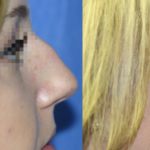What to Expect Before, During & After Breast Augmentation
What to Expect Before, During & After Breast Augmentation Surgery
Macomb County board certified plastic surgeon Dr. Ali Is one of the Detroit area’s foremost breast augmentation surgeons. In this article he explains what to expect before, during and after breast augmentation surgery. Knowing what to expect helps you make the right breast augmentation decisions to fulfill your goals and meet your appearance expectations.
Before Breast Augmentation Surgery: Preparing
Like most surgical procedures, the preparation process for breast augmentation begins well in advance of the surgery itself. Dr. Ali, a Macomb County board certified plastic surgeon, will go over everything you need to know and do in the weeks prior to the surgery. His patients are advised to stop smoking and using tobacco and nicotine products several weeks prior to your surgery date. Smoking can interfere with the healing process and increases the risks of complications. He may also ask you to stop taking hormonal birth control methods, because they may increase the risk of blood clots.
Around 10 days to two weeks prior to the surgery, you will need to stop taking ibuprofen, aspirin and medications that contain those products, and to stop drinking red wine, because they tend to thin the blood and may increase the chances of bleeding during and after the procedure. Dr. Ali will want to know what vitamin supplements you are taking, and may ask you to stop or reduce your supplement intake for the same reason.
You will need to arrange for someone to drive you home from the surgical center, and if at all possible, Dr. Ali suggests that someone stay with you at least for the first night, to be available in case you need assistance.
You will be given comprehensive instructions on how to prepare for your surgery. It is important that you fully understand your role in the process, partnering with Dr. Ali to ensure a positive outcome.
During Breast Augmentation Surgery: The Procedure
Breast augmentation surgery generally takes less than 2 hours.
Here’s how it works. Your incision will be in one of the following locations: inframammary, which is the crease below the breast; periareolar, the border of the areola and breast skin; or transaxillary, which is through the armpit. Additionally, the implant can be placed either behind the pectoralis major muscle or behind the breast tissue but in front of the muscle. The most popular choice for breast augmentations is submuscular placement via an inframammary approach, meaning most patients prefer their surgeon to go in under the breast.
The inframammary approach begins with an incision in the fold underneath the breast, and the pectoralis muscle is then slit. Next, a pocket behind the muscle is carefully formed and an implant sizer is placed to verify your decision about the size and shape. Then, the sizer is removed, any adjustments are made, the implant is put in place, and the incision is closed. The same procedure is then performed on the opposite breast.
After Breast Augmentation Surgery: Recovery & Downtime
Breast augmentation patients usually stay in a post-operation recovery room for about an hour after the operation, and then are sent home. Many patients have a long-acting anesthetic that works for about 72 hours, leaving them virtually pain free. However, many women report a sensation of chest tightness and soreness. This is perfectly normal.
During the first week and into the second, soreness and swelling are not uncommon. While you’re healing, remember that your breasts will be sensitive to physical contact or jarring movements.
Some bruising can also be expected, although many patients report that they didn’t experience it. There will be scarring, but it should fade over time. However, it likely will not disappear completely.
Dr. Ali usually recommends that his patients wear surgical bras for about two weeks following surgery for added support. You will be asked to make several follow-up appointments to monitor your recovery process. These follow-up appointments are essential, and it is important not to skip them.
Depending on what type of work you do, you may be able to return to work in three to five days. However, there will be activity restrictions that will limit heavy lifting and upper-body exercise for at least two weeks. It is not uncommon for you to feel almost back to normal after one week, but you need to take time to let your body heal completely. You should avoid strenuous activities – anything that could raise your pulse or blood pressure – for at least two weeks.
Breast Augmentation Surgery – Oakland & Macomb County
If you’re considering breast augmentation (or any other cosmetic procedure), it’s imperative to seek out a board-certified plastic surgeon with extensive experience. Macomb County Board Certified plastic surgeon Dr. Ali’s expertise and experience make him the perfect surgeon to partner with you through your breast augmentation.



